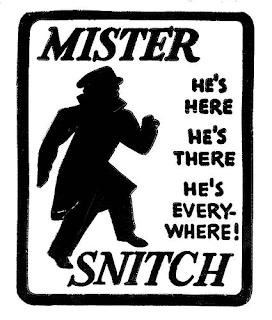
Very interesting op-ed piece from Barry Scheck of the Innocence Project discusses how Senate Bill 5038 rightfully confronts and addresses the issue of false testimony by “incentivized” confidential informants in criminal cases.
State Senate Bill 5038 adds to key advances that Washington has already made over the years to improve the administration of justice. “Incentivized” informants are people who are often used by the government in criminal prosecutions to provide information or evidence against defendants in exchange for an explicit promise or expectation of a personal benefit.
“Benefits include anything from reduced or eliminated jail time to improved living conditions behind bars to monetary rewards,” says Scheck. “Recognizing both the value of this testimony to the state and the risk that a witness will be tempted to give false testimony in order to benefit personally, this bill outlines specific information that must be learned and turned over to the defense in the discovery process before trial.” This, says Scheck, will ensure that all parties have an opportunity to properly scrutinize the informant.
“The reality is, some informants lie,” said Scheck. “When they do, they undermine the integrity and the truth-seeking function of our justice system.” In support of his argument, Scheck cited these facts:
• False testimony by incentivized witnesses is a leading cause of wrongful conviction in capital cases nationally, a contributing factor in nearly half of such exonerations.
• Of 349 DNA-based exonerations, 17 percent involved an incentivized witness.
• In Tulia, Texas, 46 innocent people were convicted of drug charges based on the testimony of a single, lying informant.
• Ten Washington state wrongful conviction cases listed on the National Registry of Exonerations involved the use of incentivized testimony.
Scheck believes these numbers demonstrate that this is a national problem, requiring all states to look closely at the safeguards needed to regulate this system. SB 5038 addresses an information gap in the system that will improve accuracy and protect constitutional rights. Prosecutors have a responsibility to know and disclose this information.
In this year alone, in addition to Washington, four states are considering proposals to strengthen or establish new frameworks for assessing informant testimony. Notably, while some proposals go further than others, all of these proposed reforms impose new disclosure requirements around incentivized informants.”
My opinion? For far too long, the world of incentivized informants has been an evidentiary black hole. The testimony of jailhouse snitches, confidential informants and co-defendants should immediately be treated as suspect. Every year that passes without these reforms puts more innocent people at risk and strikes at the heart of the credibility of our justice system. A healthy justice system demands that we ensure that the strongest protections are in place for the innocent.
Please contact my office if you, a friend or family member are charged with a crime. Hiring an effective and competent defense attorney is the first and best step toward justice.






